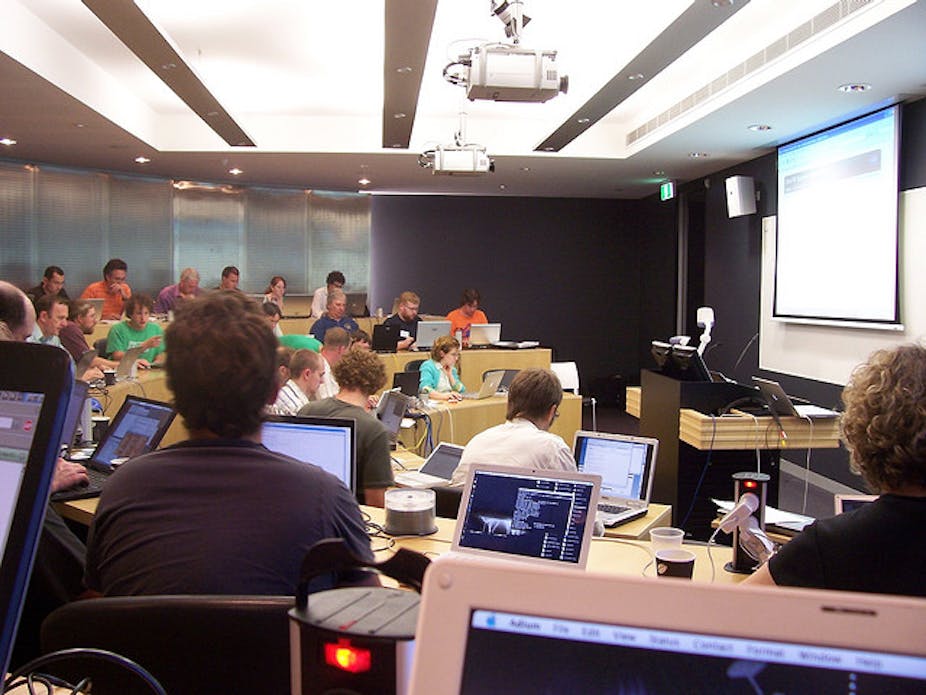The government’s proposed cap on work-related education expense deductions will decrease long run GDP by between A$2.8 and $6 billion per year and cut national productivity growth by between 0.2 to 0.4% per year, according to a new submission to Treasury by Universities Australia.
The government is proposing to cap the amount of tax-deductible self education expenses a person can claim at $2,000 per year as part of a suite of changes designed to help fund the Gonski school reforms.
In a submission to Treasury, Universities Australia said that full fee-paying postgraduate student enrolments will drop by up to 30% in four years and increase the cost of courses by between 30 and 54% if the cap is introduced.
The submission calculated that postgraduate enrolments will drop by 30,000 and reduce government income tax revenues by at least $840 million per year due to lost productivity.
“This is a counter-productive, ill-conceived and unfair taxation measure,” said Universities Australia Chief Executive, Belinda Robinson.
Universities Australia said the proposals will disadvantage women, people from regional communities who already incur high costs in pursuing further education and poorer people.
Universities Australia said 87% of self-education expense claims come from those who earn $80,000 or less.
However, a spokesman for Treasurer Chris Bowen described the proposed changes as sensible.
“The Government has made sensible changes to the allowable deductions for self-education that reflect an appropriate level of claimable expenses. We released a discussion paper outlining the Government’s proposed approach to introducing a cap, and works through a range of related issues, such as the effect of the cap on the depreciation of capital assets relating to education, the current $250 no-claim threshold, and personal services income,” the spokesman said.
“The Government is currently considering the submissions to the discussion paper process.”
Senator Kim Carr, Minister for Higher Education, said he was aware universities were concerned about the issue.
“The Labor Government has made record investments in universities to support teaching and learning and our world class research effort. We have an iron-clad commitment to excellence, and we are determined to ensure Australia’s students, researchers and institutions are second to none,” he said.
“I understand that universities are concerned about the tax deductibility measure. When I met with the Vice Chancellors and Universities Australia in Canberra last week they made these concerns clear.”
Senator Carr said he had “invited the universities to come forward with any proposals and, as I told them at our meeting, I am in discussion with my colleagues about ways to address the sector’s concerns, within the constraints of the Budget.”
Downstream effects
Roy Green, Dean of UTS Business School at University of Technology, Sydney and an expert on productivity, described the plan to cap self-education expense deductions as “extraordinary”.
“It is extraordinary that a government supposedly committed to the development of a knowledge based economy should introduce a savings measure which will have exactly the opposite outcome, with further counter-productive downstream effects identified in the Universities Australia analysis,” he said.
“We already have evidence that this policy change is dissuading applicants for professionally oriented university postgraduate programs, and the position is bound to deteriorate further in coming months, with a serious impact on the higher education sector itself as well as individual career aspirations.”
Professor Green said that “the entire $3.8 billion savings package, including the ‘efficiency dividend’, could have been avoided by abolishing the diesel fuel tax rebate for the mining industry.”
“If Prime Minister Rudd really wants to diversify sources of economic growth in the aftermath of the resources boom, why wouldn’t this concession be on the table?” he said.

